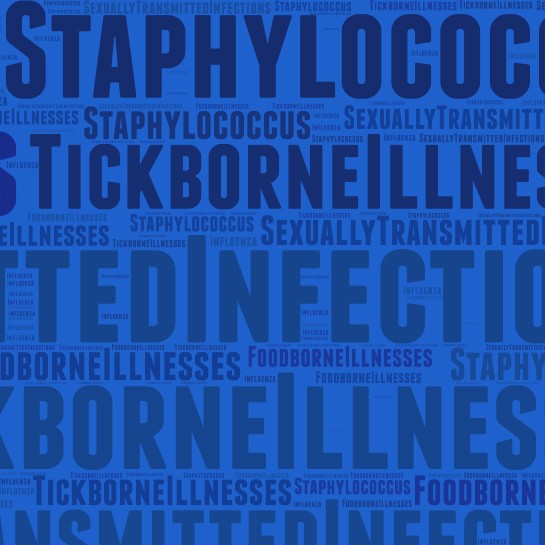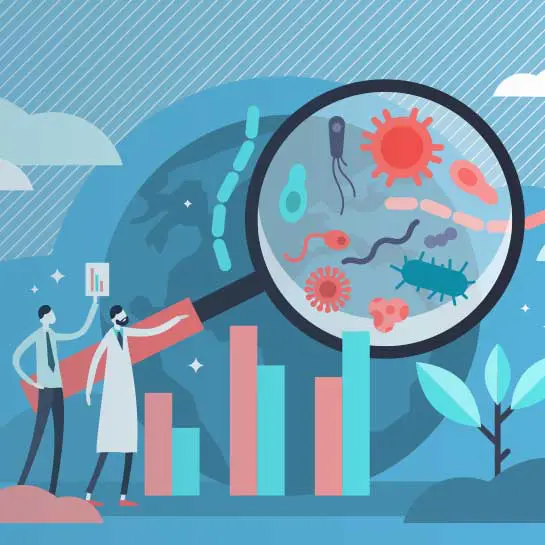Syphilis Treatment
Sexually transmitted diseases can have serious implications for your overall health. Among them, syphilis is especially concerning due to its ease of transmission, uncomfortable symptoms, and long-term health risks. As the leaders in infectious disease diagnosis and treatment in New Jersey, ID Care specializes in the treatment of syphilis to help control its spread and restore quality of life.
Causes Of Syphilis
Syphilis is spread through close, skin-to-skin contact with the bacteria Treponema pallidum. Like genital herpes, untreated syphilis bacteria can lie dormant in your body for decades before becoming active again. Transmission usually occurs during:
- Vaginal sex
- Anal sex
- Oral sex (less common)
- Vaginal birth
Syphilis isn’t contracted through casual contact. You can’t get it from sharing drinks, holding hands, using communal toilet seats, hugging, sneezing, or coughing.
Syphilis Risk Factors
Certain populations are at higher risk of contracting syphilis than others. Because syphilis develops in many stages, it can be hard to determine how far along it has progressed. Individuals with an increased risk of contracting syphilis include:
- Anyone who engages in unprotected sex, especially those who do so with multiple partners
- Men who have sex with men
- HIV-positive individuals
- Pregnant women
People with syphilis are also at increased risk for developing HIV because the sores produced by the bacteria provide an ideal place for the virus to enter the bloodstream. HIV weakens the immune system, which makes contracting syphilis much easier. Essentially, any person engaging in unprotected, penetrative sex is at a high risk of contracting syphilis.
Syphilis Symptoms
Syphilis occurs in four stages. The early stage of syphilis usually produces a single small and painless sore, or chancre, that typically develops where the bacteria entered the body. These chancres usually develop around three weeks after exposure to the bacteria. They are small, painless bumps that may be easy to miss.
If you don’t receive treatment, syphilis will progress into the second stage of the infection, called secondary syphilis. During this time, a person may experience:
- A non-itchy rash that begins on the torso and spreads to the hands and feet
- Sore throat
- Fever
- Swollen lymph glands
- Headaches
- Fatigue
- Muscle aches
- Joint pain
- Loss of appetite
- Wart-like skin patches around genitals or skin folds
If the infection remains untreated, it progresses into the latent stage when many symptoms might disappear only to return later. The last stage is late syphilis, and it can cause severe damage to your brain, nerves, eyes, heart, blood vessels, liver, bones, and joints.
Syphilis Diagnosis And Treatment
ID Care diagnoses syphilis through a blood test that will determine if your body is producing specific antibodies that fight a syphilis infection. These tests allow our team to determine if the infection is recent or contracted in the past.
Fortunately, syphilis can be cured quickly with antibiotics as long as it is diagnosed and treated in the early stages. Antibiotic duration depends on the stage of disease, and is usually treated with intramuscular shots. It’s also important to remember to practice safer sex. Use a latex condom correctly, communicate thoroughly with all sexual partners about their health status, and get tested for sexually transmitted diseases regularly.
Learn More About Syphilis
Avoiding the more serious effects of syphilis is simple, with prompt treatment by experienced infectious disease specialists. If you have questions about sexually transmitted diseases, including syphilis, contact ID Care today. When you schedule an appointment at one of our New Jersey locations, you’ll receive expert diagnosis and treatment to resolve the infection and eliminate symptoms.




